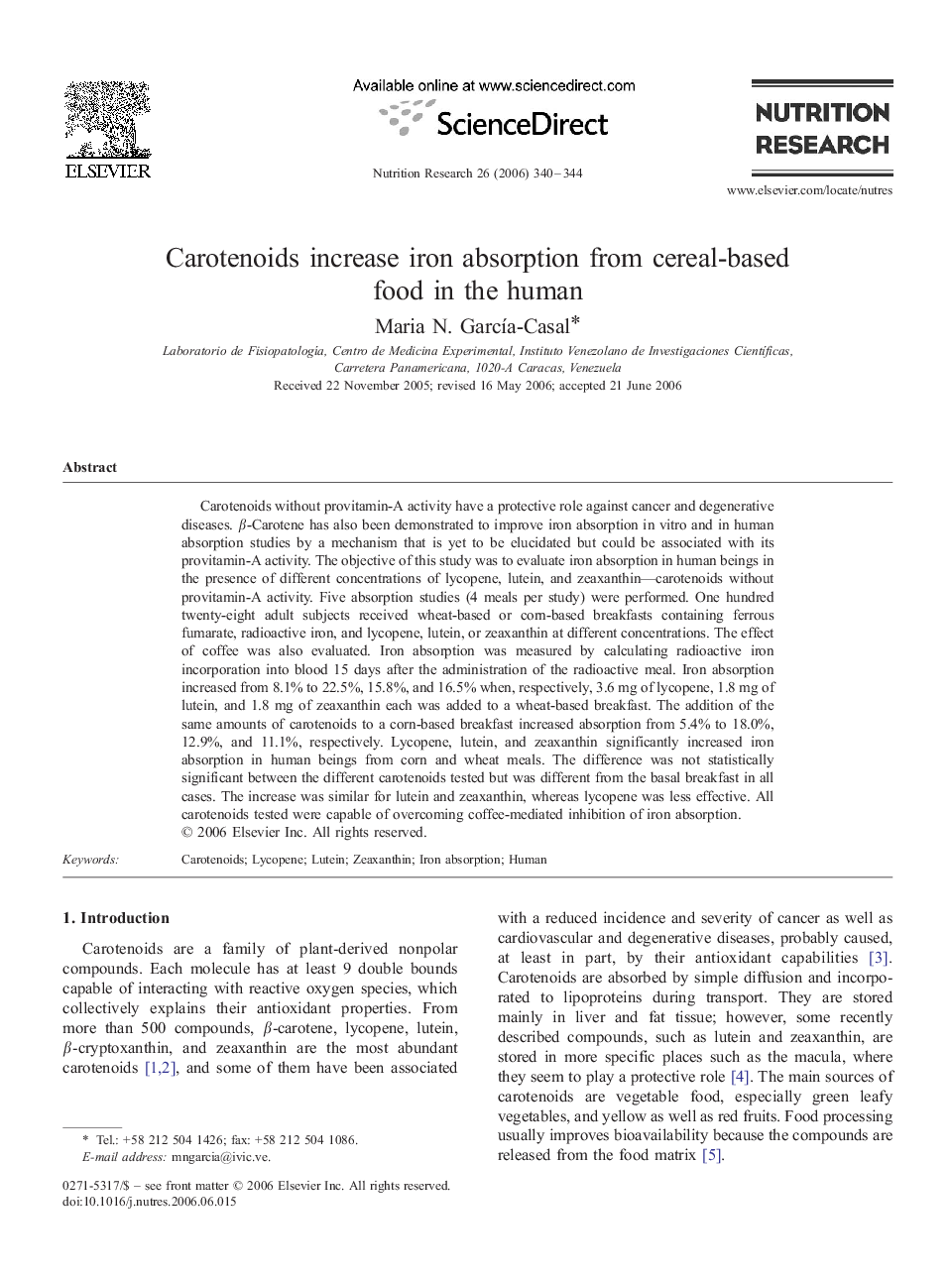| Article ID | Journal | Published Year | Pages | File Type |
|---|---|---|---|---|
| 2809526 | Nutrition Research | 2006 | 5 Pages |
Carotenoids without provitamin-A activity have a protective role against cancer and degenerative diseases. β-Carotene has also been demonstrated to improve iron absorption in vitro and in human absorption studies by a mechanism that is yet to be elucidated but could be associated with its provitamin-A activity. The objective of this study was to evaluate iron absorption in human beings in the presence of different concentrations of lycopene, lutein, and zeaxanthin—carotenoids without provitamin-A activity. Five absorption studies (4 meals per study) were performed. One hundred twenty-eight adult subjects received wheat-based or corn-based breakfasts containing ferrous fumarate, radioactive iron, and lycopene, lutein, or zeaxanthin at different concentrations. The effect of coffee was also evaluated. Iron absorption was measured by calculating radioactive iron incorporation into blood 15 days after the administration of the radioactive meal. Iron absorption increased from 8.1% to 22.5%, 15.8%, and 16.5% when, respectively, 3.6 mg of lycopene, 1.8 mg of lutein, and 1.8 mg of zeaxanthin each was added to a wheat-based breakfast. The addition of the same amounts of carotenoids to a corn-based breakfast increased absorption from 5.4% to 18.0%, 12.9%, and 11.1%, respectively. Lycopene, lutein, and zeaxanthin significantly increased iron absorption in human beings from corn and wheat meals. The difference was not statistically significant between the different carotenoids tested but was different from the basal breakfast in all cases. The increase was similar for lutein and zeaxanthin, whereas lycopene was less effective. All carotenoids tested were capable of overcoming coffee-mediated inhibition of iron absorption.
